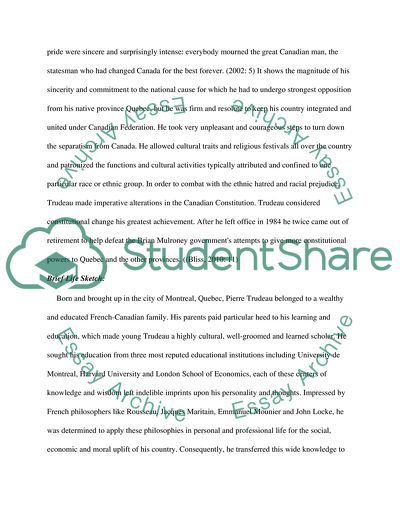Cite this document
(The Greatest Prime Minister in Canadian History for Promoting Ethnic Research Paper, n.d.)
The Greatest Prime Minister in Canadian History for Promoting Ethnic Research Paper. Retrieved from https://studentshare.org/history/1742625-the-greatest-prime-minister-in-canadian-history-for-promoting-ethnic-diversity-and-communities-was-pierre-trudeau
The Greatest Prime Minister in Canadian History for Promoting Ethnic Research Paper. Retrieved from https://studentshare.org/history/1742625-the-greatest-prime-minister-in-canadian-history-for-promoting-ethnic-diversity-and-communities-was-pierre-trudeau
(The Greatest Prime Minister in Canadian History for Promoting Ethnic Research Paper)
The Greatest Prime Minister in Canadian History for Promoting Ethnic Research Paper. https://studentshare.org/history/1742625-the-greatest-prime-minister-in-canadian-history-for-promoting-ethnic-diversity-and-communities-was-pierre-trudeau.
The Greatest Prime Minister in Canadian History for Promoting Ethnic Research Paper. https://studentshare.org/history/1742625-the-greatest-prime-minister-in-canadian-history-for-promoting-ethnic-diversity-and-communities-was-pierre-trudeau.
“The Greatest Prime Minister in Canadian History for Promoting Ethnic Research Paper”, n.d. https://studentshare.org/history/1742625-the-greatest-prime-minister-in-canadian-history-for-promoting-ethnic-diversity-and-communities-was-pierre-trudeau.


